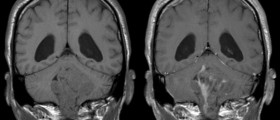
A headache can be a very frustrating and a very persistent problem. How many people do you know who have never had a headache? Only a small number of people worldwide has never experienced this type of pain. Headaches can range from a simple tension-type to a stubborn and very painful migraine.
The pain can involve the entire head or can be focused only on one side. If you have ever had this type of a headache, then you have probably wondered what causes the pain to be localized only on one side. There are two possible reasons. It can be a migraine or a cluster headache. Many people tend to associate one-sided headache to tension, but tension-type headaches usually give a non-specific pain and involve the entire head.
Migraine Headaches
A migraine headache often begins as a dull pain that quickly becomes a very severe one. At first, the pain is non-localized, but as it becomes sharper, it focuses on one side more than the other. A migraine is often followed by visual changes, sensitivity to light, nausea and vomiting. If the pain is frequent on only one side, it can be a sign of a brain tumor and is a reason for a visit to a doctor.
Cluster Headaches
The cluster headache is less common than a migraine. It causes a sharp burning pain, usually localized over an eye, which can swell and become red. This headache appears in cluster (thus, the name) and can go on for days and even weeks before disappearing.
Other causes of one-sided headaches
A one-sided headache may not necessarily be caused by a migraine or a cluster headache. Apart from a head injury, the pain can be provoked by an inflamed or infected sinus. In this case, the pain will be localized on one side of the face or forehead. If the pain is frequently localized on only one side of the head, it can be a sign of a brain tumor or some other mass in the brain.
The treatment of the one-sided headache is not complicated and it will give good results. If identified, the majority of the headaches can even be prevented. The important thing to do is to keep the track of the frequency of the headaches. Their localization is important as well, since they can be a sign of a more serious problem. It is recommendable that a doctor evaluates your headaches, so that he could easily determine the cause and give a proper treatment.
















Your thoughts on this
Loading...